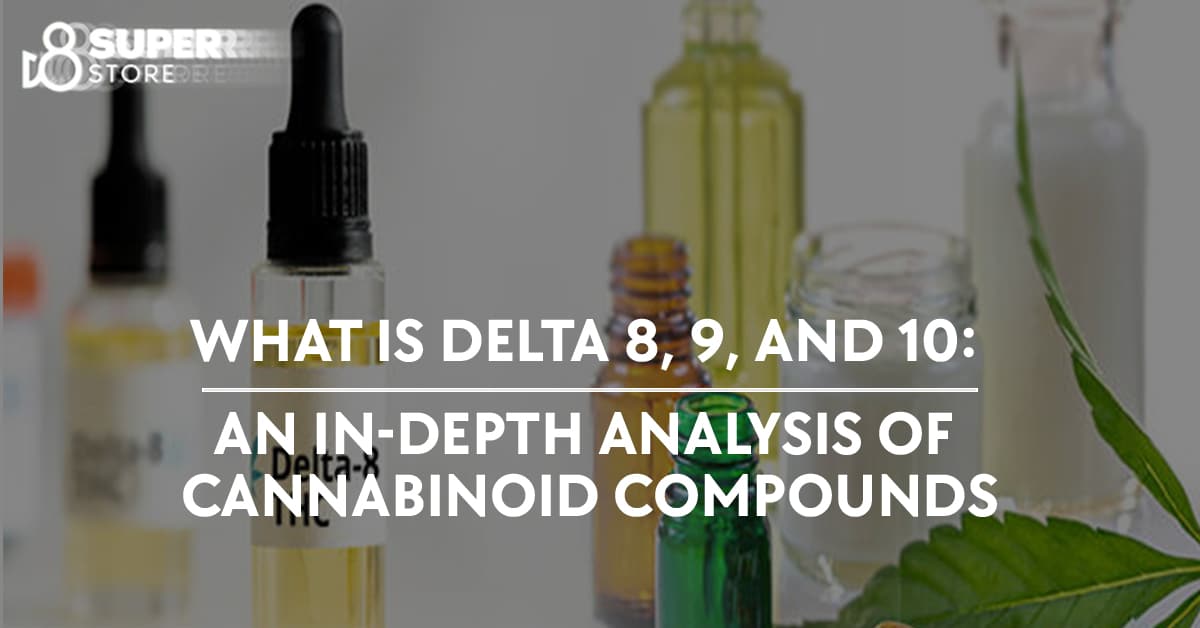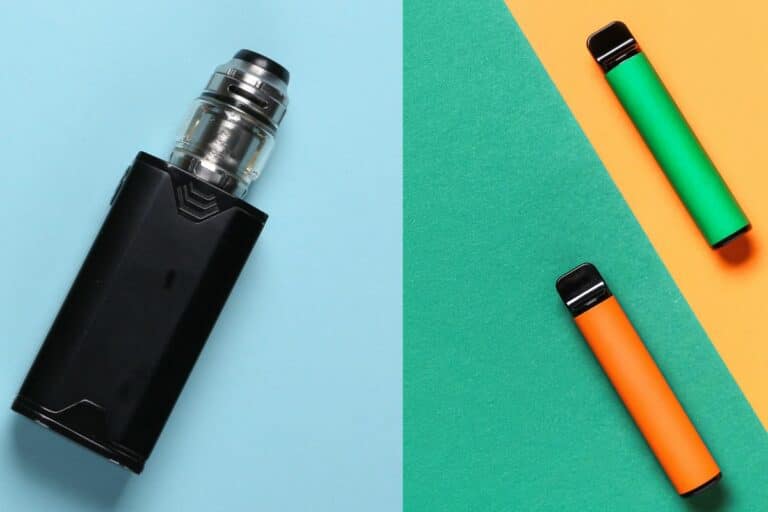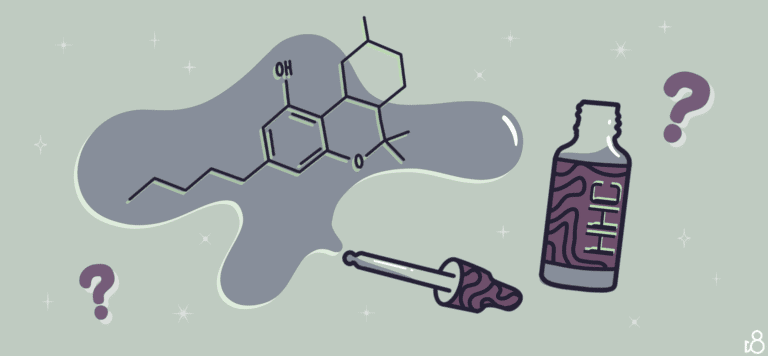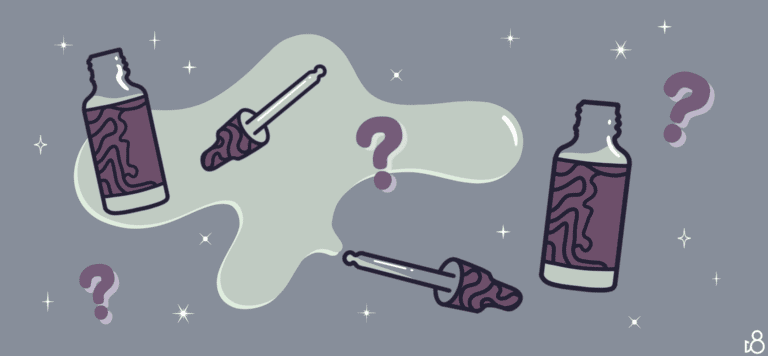What is Delta 8, 9, and 10: An In-Depth Analysis of Cannabinoid Compounds
Delta 8, Delta 9, and Delta 10 THC might seem like triplets from the cannabis family, but trust me, they dance to their own tunes! The chatter about them is heating up because they’re not all made the same. Some are cool to use just about anywhere, others gently swing you into chill mode, and a few rocket you right into outer space. As folks get more into the hemp game, really getting what sets these THC cousins apart is key. You’re on the brink of discovering their unique flair and how they can jazz up your life. If the hemp world excites you, stick around to learn their secret moves and how they might just be the magic you need.
Delta 8 THC, a less potent version of Delta 9 THC, has become increasingly popular for its mild psychoactive effects, making it a suitable option for those seeking relaxation without feeling overwhelmed.
Delta 9 THC is widely recognized for its classic psychoactive properties and is abundant in marijuana. Meanwhile, Delta 10 THC is still being studied, with scientists working to unveil its distinctive properties and potential benefits. As research continues, it is crucial to keep in mind the safety, legal considerations, and possible applications for these cannabinoids in both medical and recreational contexts.
Key Takeaways
- Delta 8, Delta 9, and Delta 10 THC are different cannabinoids found in the cannabis plant, each with unique properties.
- Delta 8 THC offers milder psychoactive effects than Delta 9 THC, while Delta 10 THC is currently undergoing further research.
- Understanding the safety, legality, and potential uses of these cannabinoids is essential for responsible consumption and application.
Delta 8 THC
Chemical Structure
Delta 8 THC is a type of cannabinoid found in cannabis plants. Like other cannabinoids, it belongs to the tetrahydrocannabinol (THC) family. Delta 8 THC has a similar chemical structure to delta-9 THC, its more well-known counterpart. The primary difference is the placement of a double bond, which gives delta-8 THC slightly different properties.
Psychoactive Effects
Delta 8 THC does induce psychoactive effects similar to delta-9 THC, but with a few notable differences. Delta-8 binds to the CB1 receptors in the brain, inducing a “high” sensation. The psychoactive experience from delta-8 THC is said to be milder, providing a more clear-headed and functional high compared to delta-9 THC. This makes delta-8 THC a potentially desirable option for those seeking a less intense experience.
Potential Benefits
Research on delta-8 THC is still relatively limited, but some studies suggest that it may offer potential benefits. While delta-9 THC has well-documented medicinal properties, delta-8 THC may have unique advantages due to its milder psychoactive effects. Some users report improved focus and motivation while using delta-8 THC, making it a possible alternative for those seeking the therapeutic benefits of cannabis without the intense high associated with delta-9 THC.
Adverse Effects
As with any cannabinoid, there are possible adverse effects from using delta-8 THC. These may include dry mouth, drowsiness, and short-term memory impairment. However, users have reported fewer negative side effects compared to delta-9 THC, suggesting that delta-8 THC may be a more tolerable option for some individuals. It is essential to use caution and consult with a medical professional when trying delta-8 THC or any other cannabinoid product, as individual reactions can vary.

Delta 9 THC
Chemical Composition
Delta 9 THC, also known as delta-9-tetrahydrocannabinol, is the primary psychoactive compound found in the cannabis plant. It is one of many cannabinoids present in the marijuana plant, and primarily exists in the trichomes of the plant’s flowers. Delta 9 THC has a similar chemical structure to its relative, delta 8 THC, but with a few key differences that impact its effects on the body.
Psychoactive Properties
Delta 9 THC is well-known for its psychoactive effects, which produce the feeling of being “high” experienced when consuming marijuana. These effects are primarily due to the compound’s ability to bind with the CB1 receptor of the endocannabinoid system. CB1 receptors are predominantly found in the brain and central nervous system and play a crucial role in regulating various physiological processes, such as mood, memory, and pain perception.
Indica and sativa are two primary categories of cannabis plants, which exhibit different effects when consumed. Indica strains tend to produce a more relaxing, calming effect, while sativa strains often result in an energizing and uplifting experience. The specific effects of a cannabis strain are largely determined by its particular ratio of cannabinoids, including delta 9 THC, as well as other compounds like terpenes and flavonoids.
Medical Benefits
Delta 9 THC has been recognized for its wide range of medical benefits, which primarily stem from its ability to interact with the body’s endocannabinoid system. Some of the main medical benefits attributed to delta 9 THC include:
- Pain relief: Delta 9 THC has been shown to possess analgesic properties, making it a useful option for combating various forms of pain, such as neuropathic and inflammatory pain.
- Nausea and vomiting reduction: This cannabinoid has been effectively used as an antiemetic in certain medical treatments, particularly for patients undergoing chemotherapy.
- Appetite stimulation: Delta 9 THC can act as an appetite stimulant, making it useful for managing appetite loss in patients with conditions like HIV/AIDS or cancer.
- Sleep aid: Its sedative effects can be helpful for those with insomnia and other sleep disorders.
Potential Risks
Although delta 9 THC has numerous medical benefits, it is essential to acknowledge the potential risks associated with its use:
- Impaired memory: Delta 9 THC may lead to short-term memory impairment, making it challenging to recall recent events or learn new information during the period of intoxication.
- Increased anxiety and paranoia: In some individuals, especially those predisposed to mental health issues, delta 9 THC may cause or exacerbate anxiety and paranoia.
- Impaired motor skills and coordination: The psychoactive effects of delta 9 THC can impair motor skills, coordination, and reaction time, increasing the risk of accidents.
- Risk of addiction: Prolonged and heavy use of delta 9 THC-containing products can potentially lead to addiction or dependence, with withdrawal symptoms occurring upon cessation of use.
To minimize these risks, it is crucial to use delta 9 THC responsibly, follow medical recommendations, and avoid consuming more than the recommended dosage.
Delta 10 THC
Molecular Structure
Delta-10 THC is one of the many cannabinoids found in the cannabis plant. Structurally, delta-10 THC is similar to its relatives, delta-8 and delta-9 THC, but with a slightly different arrangement of atoms within the molecule. This difference in molecular structure is responsible for the unique psychoactive properties and potential benefits of delta-10 THC.
Psychoactive Effects
Although less potent than delta-9 THC, delta-10 THC still possesses psychoactive properties. Users often report a milder, more clear-headed high compared to other THC analogs. The psychoactive effects of delta-10 THC may vary between individuals, depending on factors like dosage, tolerance, and body chemistry.
Potential Benefits
While research on delta-10 THC is still limited, there are some potential benefits associated with this cannabinoid. Some users have found delta-10 THC to provide relief from pain, inflammation, and anxiety. Additionally, delta-10 THC might have less severe side effects compared to delta-9 THC, making it a promising alternative for those seeking the therapeutic benefits of cannabis without the intense high typically associated with delta-9 THC.
Adverse Effects
As with most cannabinoids, delta-10 THC may also have some adverse effects. Possible side effects can include rapid heart rate, dry mouth, red eyes, and increased appetite. However, these side effects are generally less pronounced compared to delta-9 THC. It is important to note that individual experiences may vary, and it is recommended to start with a low dose and gradually increase it to determine your personal tolerance and avoid potential negative effects.
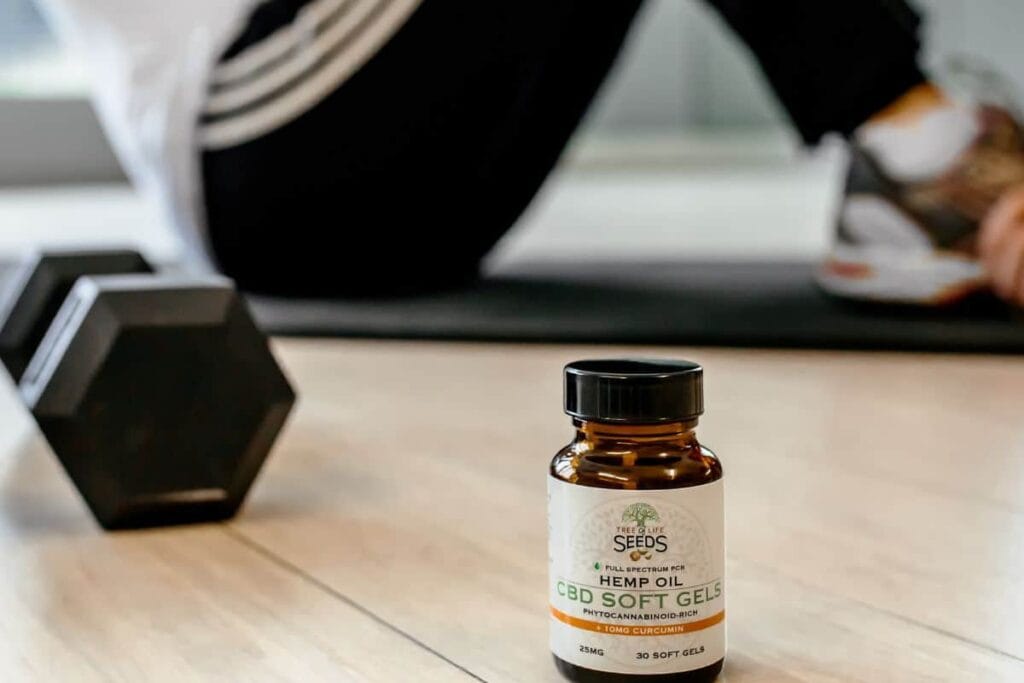
Hemp-Derived Cannabinoids
Hemp-derived cannabinoids, such as CBD, delta-8-THC, delta-9-THC, and delta-10-THC, are chemical compounds extracted from the hemp plant. These cannabinoids interact with the body’s endocannabinoid system and provide numerous potential therapeutic benefits.
Farm Bill
The 2018 Farm Bill legalized the cultivation of hemp and hemp-derived products with a THC concentration of not more than 0.3% in the United States. Consequently, hemp-derived CBD and other cannabinoids have gained significant attention and popularity.
- Legality: hemp-derived cannabinoids with less than 0.3% THC are federally legal.
- Regulation: The United States Department of Agriculture (USDA) oversees hemp cultivation, while the Food and Drug Administration (FDA) regulates hemp-derived products, such as CBD.
Hemp vs Marijuana
Hemp and marijuana are both members of the Cannabis genus, but they have distinct differences in terms of chemical composition and legality. Key points to note are:
- THC content: Hemp has less than 0.3% THC, while marijuana contains higher levels of THC, commonly around 5-20%.
- CBD content: Hemp typically has higher concentrations of CBD, while marijuana is often lower in CBD.
- Legality: Hemp is federally legal, but marijuana remains a Schedule I substance under federal law.
Delta-8-THC, delta-9-THC, and delta-10-THC are isomers of the THC molecule. Although they share the same chemical formula, their atomic arrangements differ, leading to distinct effects on the body.
- Delta-8-THC: A mildly psychoactive cannabinoid, known for its anti-nausea and pain-relief properties.
- Delta-9-THC: The most abundant and well-known cannabinoid in marijuana, responsible for its psychoactive effects.
- Delta-10-THC: A recently discovered minor cannabinoid, potentially offering mild psychoactive properties and additional therapeutic benefits.
Cannabinoid Extraction
Cannabinoid extraction is a process used to obtain specific compounds from the cannabis plant, such as delta-8 THC, delta-9 THC, and delta-10 THC. These extracted cannabinoids can then be utilized in various cannabis products like edibles, tinctures, and gummies.
Extraction Methods
There are several methods for extracting cannabinoids from the cannabis plant, each with its own benefits and drawbacks. Common extraction methods include:
- Solvent-based extraction: Using solvents such as ethanol, butane, or propane to dissolve the cannabinoids from the plant material. This method is popular because it is relatively inexpensive and can yield a high concentration of cannabinoids. However, it may also extract undesirable compounds, and residual solvents pose a risk.
- CO2 extraction: Utilizing supercritical carbon dioxide as a solvent to separate cannabinoids from the plant material. This method provides clean and pure extracts with minimal contaminants, but it is more expensive and requires specialized equipment.
- Cold-press extraction: A mechanical method in which the cannabis plant is ground and pressed to release its oils. This technique preserves terpenes and can produce a full-spectrum extract, but it may not yield as high concentrations of cannabinoids.
Types of Products
Various types of cannabis products can be made from extracted cannabinoids such as delta-8 THC, delta-9 THC, and delta-10 THC. Some examples include:
- Edibles: Cannabis-infused food products, such as brownies, cookies, chocolates, and gummies. Edibles provide a discreet way to consume cannabinoids and tend to have longer-lasting effects compared to other methods.
- Tinctures: Liquid cannabis extracts that can be administered sublingually (under the tongue) or mixed into food and beverages. Tinctures offer precise dosing, rapid onset of effects, and a more neutral taste than some edibles.
- Gummies: Soft, chewy candies infused with cannabinoids. Gummies are popular due to their ease of consumption, precise dosing, and pleasant taste.
Overall, cannabinoid extraction allows consumers to choose from a wide range of products suited to their needs and preferences. The techniques employed in cannabinoid extraction ultimately play a significant role in determining the purity, potency, and quality of these products.
Safety and Legality
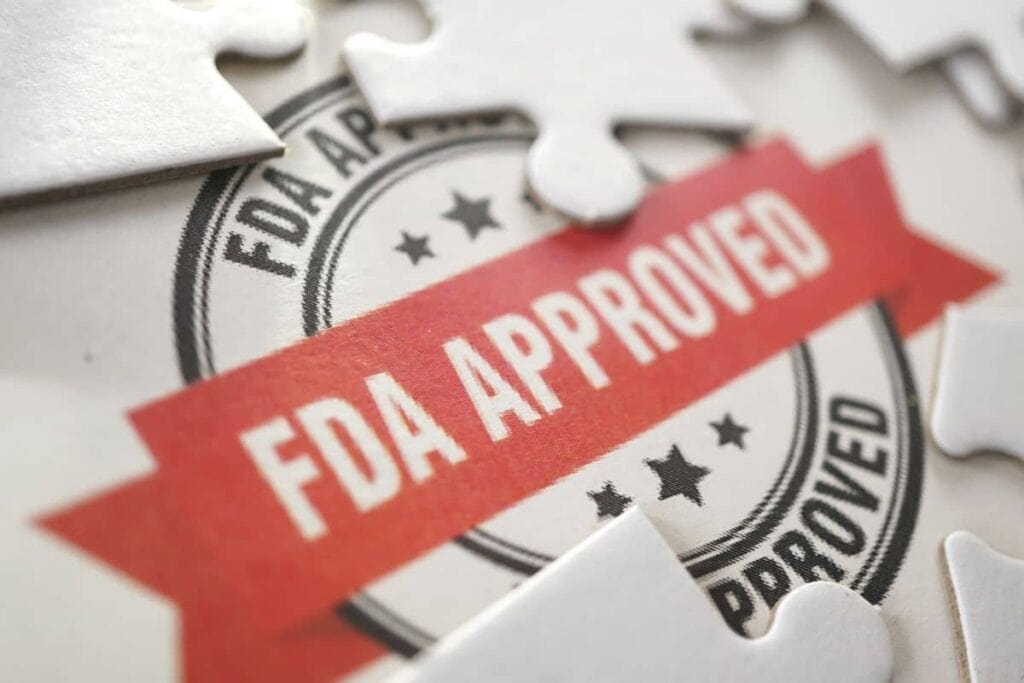
FDA Regulation
Delta 8, 9, and 10 are different forms of tetrahydrocannabinol (THC) found in cannabis plants. Delta 8 THC has gained attention for its perceived lower psychoactive effects compared to Delta 9 THC. However, safety concerns have been raised due to limited research on its effects and potential risks. The FDA is responsible for regulating the safety and quality of pharmaceutical drugs and dietary supplements, which includes cannabinoids like THC and CBD.
Currently, the FDA has not approved Delta 8, 9, or 10 THC products for consumption. In fact, the FDA has expressed concern about the safety of these products, stating that more research is needed to determine their safety profile. Laws and regulations vary between states, with some allowing the sale and use of certain THC products, while others still impose restrictions.
Drug Testing
One common concern regarding the use of THC products is the possibility of failing a drug test. Standard drug tests, such as those used by employers or law enforcement, typically detect the presence of Delta 9 THC, which is the primary psychoactive compound in cannabis. Delta 8 THC may lead to a positive result on a drug test due to its similarity in chemical structure to Delta 9 THC.
The detection of Delta 10 THC in drug tests is unclear, as this compound is relatively new, and more research is needed to determine whether it produces similar metabolites to Delta 8 or 9 THC. Consumers who undergo regular drug testing or have safety concerns should be cautious when using Delta 8, 9, or 10 THC products.
In conclusion, the safety and legality of Delta 8, 9, and 10 THC are complex due to the varying regulations, FDA involvement, and concerns surrounding drug testing. It is critical for consumers to be informed about the legal status and potential risks associated with using these compounds.
Medical and Recreational Use
Effects on Anxiety and Stress
Delta 8-THC has been known to provide a sense of calm and relaxation, which can help alleviate anxiety and stress. Unlike its close relative, delta 9-THC, delta 8-THC produces less intense psychoactive effects, making it a more favorable option for individuals seeking relief from anxiety without the risk of paranoia or more severe side effects.
Cannabinoids for Pain
Both delta 8-THC and delta 9-THC have shown potential as effective pain relievers. These cannabinoids interact with the body’s endocannabinoid system (ECS), helping to reduce inflammation and providing relief from pain. Delta 8-THC is known to be less potent than delta 9-THC, offering similar pain-relieving benefits with a reduced risk of anxiety-related side effects.
Cannabinoids for Sleep
Delta 8-THC and delta 9-THC have been reported to improve sleep quality by promoting relaxation and reducing sleep onset latency. These cannabinoids may also influence appetite, energy levels, and focus, which can indirectly impact sleep quality by helping to regulate daily routines and promote healthier sleep patterns.
When considering the use of cannabinoids, it’s essential to understand individual needs and potential risks. Delta 8-THC, delta 9-THC, and other cannabinoids may offer similar medical benefits such as anxiety reduction, pain relief, and improved sleep quality. Still, each has its own unique profile of effects and potential risks. As always, it’s best to consult with a healthcare professional regarding medical and recreational use of cannabinoids to ensure safe, effective, and appropriate administration.
Frequently Asked Questions
Which is stronger: delta-8, delta-9, or delta-10?
Delta-9-THC is the most well-known and potent among the three cannabinoids. It is the primary psychoactive compound found in cannabis. Delta-8-THC is an isomer of delta-9-THC, and while it does have psychoactive effects, they are generally considered to be milder than those of delta-9-THC. Delta-10-THC is the least studied among these cannabinoids, and research on its potency and effects is limited.
What are the key differences between delta-8, delta-9, and delta-10?
Delta-8, delta-9, and delta-10-THC differ in their chemical structures, which results in different interactions with the body’s endocannabinoid system. Delta-9-THC is known for inducing strong psychoactive effects and can be used for both recreational and medicinal purposes. Delta-8-THC produces milder psychoactive effects and is gaining popularity for its potential therapeutic benefits, such as reducing anxiety and providing relief from pain and nausea. Delta-10-THC is relatively unknown, and its effects and benefits have yet to be thoroughly researched.
How do delta-8, delta-9, and delta-10 interact with the body?
All three cannabinoids interact with the body’s endocannabinoid system, specifically with the CB1 and CB2 receptors. Delta-9-THC binds strongly to the CB1 receptors, primarily found in the brain and central nervous system, resulting in its psychoactive effects. Delta-8-THC has a lower affinity for these receptors, which may contribute to its comparatively milder psychoactive effects. The exact interaction of delta-10-THC with the body’s receptors is not well understood, and further research is needed to determine its specific effects.
Are there any potential side effects or risks associated with delta-8, delta-9, or delta-10?
Common side effects of delta-9-THC include anxiety, paranoia, dry mouth, red eyes, impaired memory, and increased heart rate. Delta-8-THC tends to produce fewer side effects, with users reporting experiences like relaxation, increased focus, and mild euphoria without the anxiety or paranoia associated with delta-9-THC. Due to a lack of research on delta-10-THC, its potential side effects and risks are unknown.
Which cannabinoid is most suitable for recreational or medicinal use: delta-8, delta-9, or delta-10?
Delta-9-THC is the most suitable for recreational use because of its strong psychoactive effects. However, delta-8-THC may be a better option for those seeking therapeutic benefits without the intense psychoactive experiences of delta-9-THC. Delta-10-THC requires further research to determine its potential uses and benefits, and currently, it is not recommended for recreational or medicinal use due to a lack of information.
How do the benefits of delta-8, delta-9, and delta-10 compare with each other?
Delta-9-THC offers strong psychoactive effects and may provide benefits such as pain relief, appetite stimulation, and nausea reduction for medical patients. Delta-8-THC, while milder, shares some of these therapeutic effects, like pain and nausea relief, and may also help alleviate anxiety and induce relaxation without causing intense psychoactive experiences. Delta-10-THC’s benefits are not well-established, and further research is needed to determine its unique properties, interactions, and potential applications.
Resources:
- https://ajph.aphapublications.org/doi/full/10.2105/AJPH.2021.306499
- https://www.ncbi.nlm.nih.gov/pmc/articles/PMC3481531/
- https://www.webmd.com/vitamins/ai/ingredientmono-1690/delta-9-tetrahydrocannabinol-thc
- https://www.fda.gov/consumers/consumer-updates/5-things-know-about-delta-8-tetrahydrocannabinol-delta-8-thc
- https://en.wikipedia.org/wiki/Delta-10-Tetrahydrocannabinol

